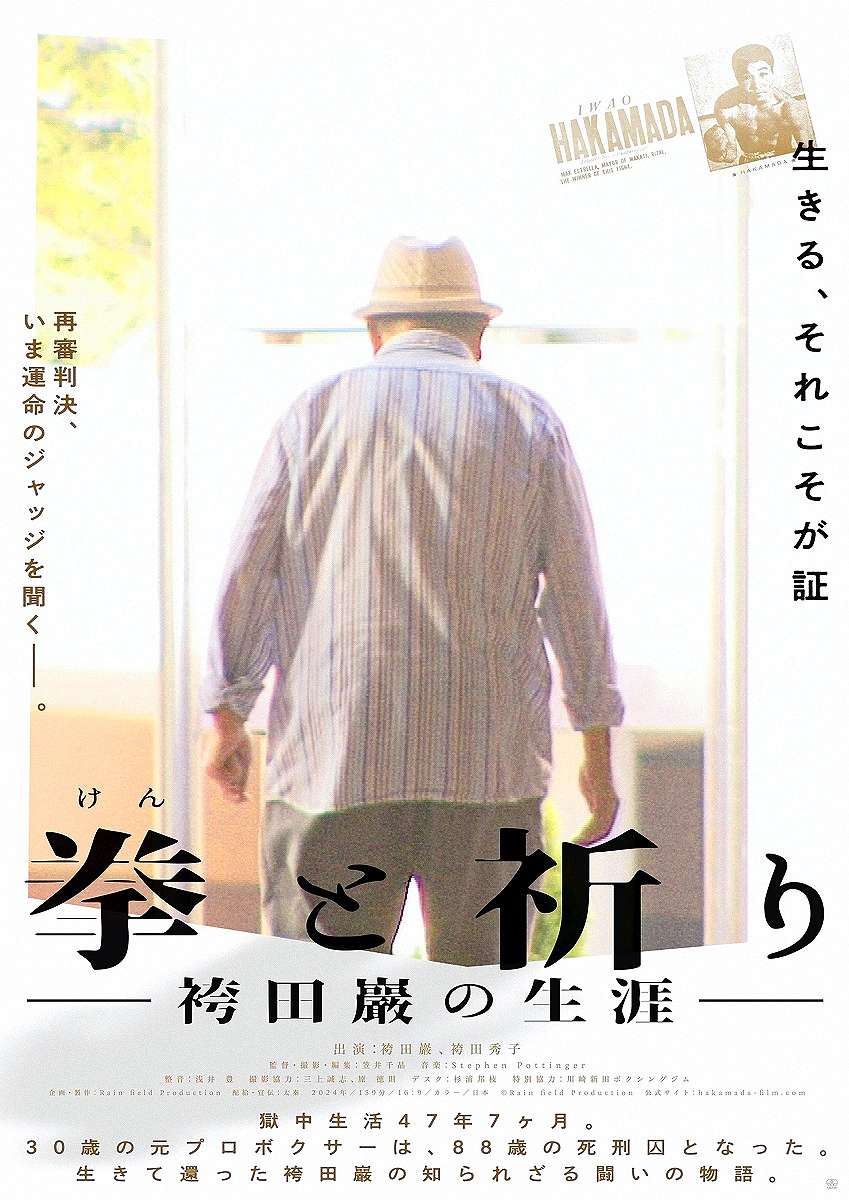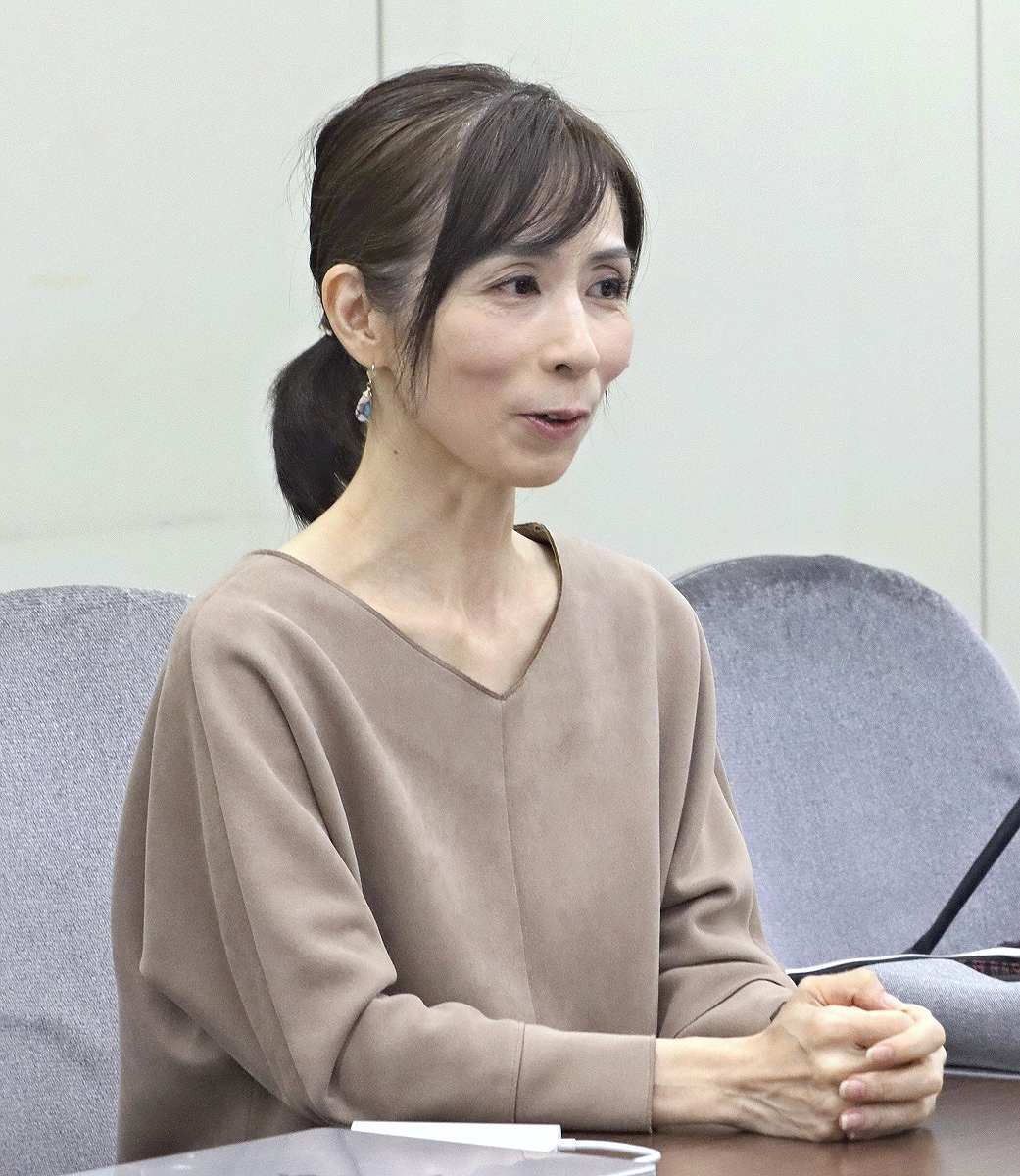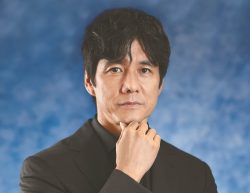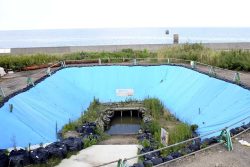
A poster for “Ken to Inori: Hakamada Iwao no Shogai” (“Fists and Prayers: The Life of Iwao Hakamada”)
16:19 JST, October 18, 2024
A documentary film about the life of Iwao Hakamata, recently cleared of a 1966 quadruple murder and let off death row, will be released in cinemas nationwide from Saturday.
The movie was directed by Chiaki Kasai, 49, who covered the case as a journalist in Shizuoka Prefecture for over 20 years.
“I want the audience to feel what Hakamata wants to tell them through the depiction of his daily life,” she said.
Over the course of 2½ hours, “Ken to Inori: Hakamata Iwao no Shogai” (“Fists and Prayers: The Life of Iwao Hakamada”) looks back on the life of the 88-year-old former inmate. (“Hakamada” is the spelling used in the movie’s official English title.)
Through archival footage and selections from roughly 400 hours of video shot by Kasai over the years, the film traces Hakamata’s life from his youth to the day when he was acquitted in Shizuoka District Court last month.
The film features audio tapes of interrogations by investigators, the course of the trial, his life when he was active as a boxer and how he lives now with “detention syndrome,” developed during his years in prison.
The documentary also includes original footage filmed in the car Hakamata rode home in from the Tokyo Detention House when he was released following the court’s 2014 decision to grant him a retrial.
“He was surprisingly quiet and seemed to be peering out of the window and around him,” the director recalled.

Director Chiaki Kasai
Kasai had interviewed Hakamata and his sister, Hideko, as a reporter for a media outlet in Shizuoka Prefecture and also a freelance journalist. She tried to make this a film not just about a man “on death row who may have been falsely accused,” but also about “a person named Iwao Hakamata.”
“From the way he walks around the town now with detention syndrome, it seems this former boxer is still fighting in his heart,” she said.
Having lived for a while in the same apartment block as Hideko, Kasai was able to film Hakamata “in his ordinary state at close range.” She added, “This is the culmination of 20 years of reporting.”
Hideko, 91, saw the film and told Kasai, “Iwao talks a lot in the film.”
The film is scheduled to be screened in 48 theaters from Hokkaido to Okinawa Prefecture.
Top Articles in Culture
-

BTS to Hold Comeback Concert in Seoul on March 21; Popular Boy Band Releases New Album to Signal Return
-

Lifestyle at Kyoto Traditional Machiya Townhouse to Be Showcased in Documentary
-

Maison&Objet Kicks off Near Paris with Japanese Lighting Designers’ Installations on Display, Creating Rich Environment
-

‘Jujutsu Kaisen’ Voice Actor Junya Enoki Discusses Rapid Action Scenes in Season 3, Airing Now
-

Prestigious Japanese Literature Prize Names Toriyama, Hatakeyama as Winners
JN ACCESS RANKING
-

Japan Institute to Use Domestic Commercial Optical Lattice Clock to Set Japan Standard Time
-

China Eyes Rare Earth Foothold in Malaysia to Maintain Dominance, Counter Japan, U.S.
-

Man Infected with Measles May Have Come in Contact with Many People in Tokyo, Went to Store, Restaurant Around When Symptoms Emerged
-

Japan, Qatar Ministers Agree on Need for Stable Energy Supplies; Motegi, Qatari Prime Minister Al-Thani Affirm Commitment to Cooperation
-

Australian Woman Dies After Mishap on Ski Lift in Nagano Prefecture






















